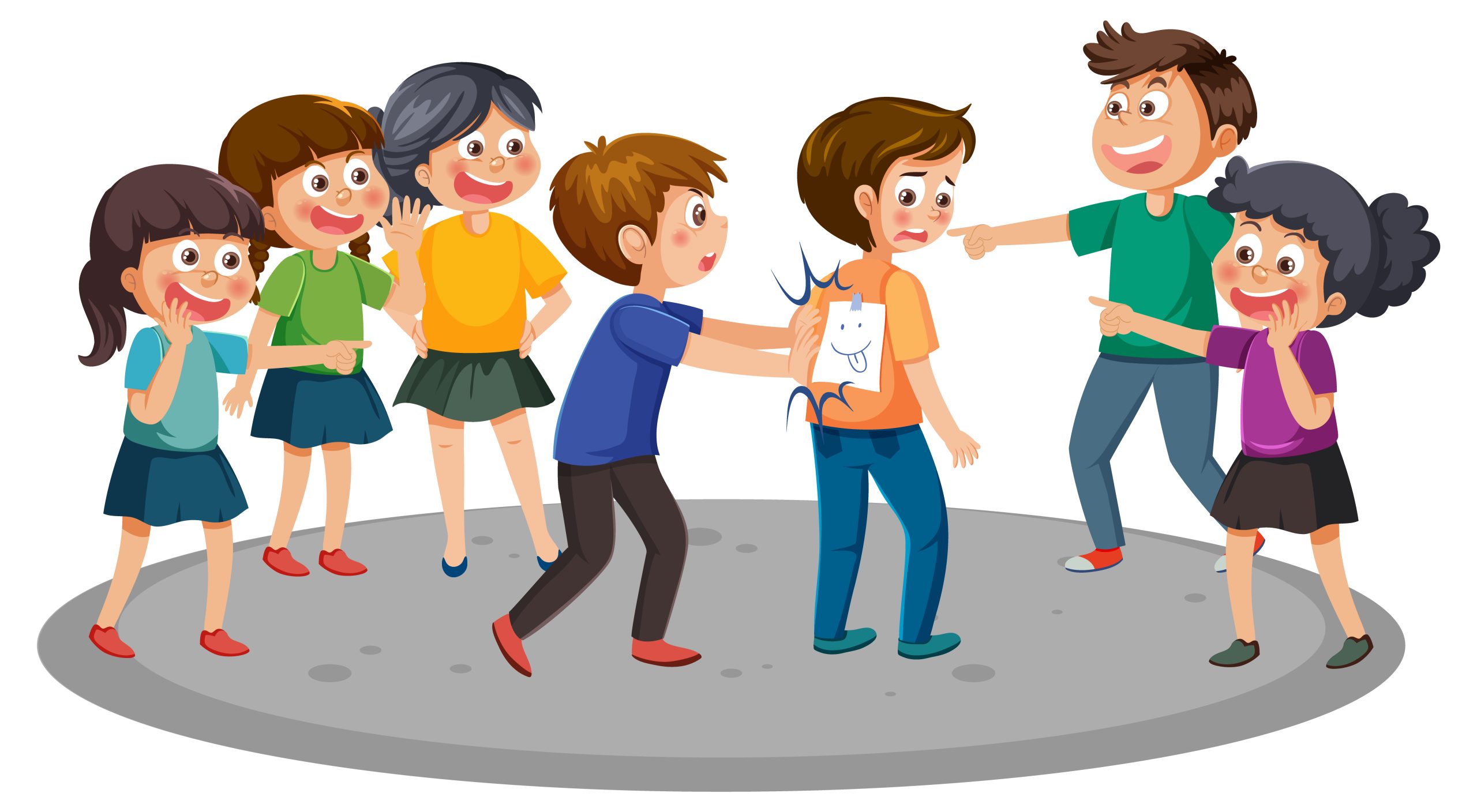A study by Källmén and Hallgren examined the trends and associations between bullying and mental health problems among secondary school students in Stockholm from 2014 to 2020. They found that bullying was associated with higher odds of mental health problems, especially for boys who were more vulnerable to the negative effects of bullying than girls.
Imagine being a parent whose child comes home from school every day with tear-stained cheeks, recounting tales of humiliation and torment at the hands of bullies. The heartbreak, the helplessness, the burning desire to protect your child from the cruelty of the world – these emotions resonate deeply with countless parents and caregivers. Take our assessment to understand if their situation is a temporary phase or requires further attention. Answer a few simple questions to better comprehend your child’s experience and take appropriate action.
Definition of Bullying
Bullying involves intentional harm through actions like name-calling, lies, physical or verbal attacks, and exclusion. It occurs in various settings, including school, online, and at home.
Cyberbullying uses digital devices for mean texts, hurtful social media posts, or sharing embarrassing pictures without consent. Bullies often exploit their power dynamics, targeting those who appear different.
Bullying induces fear, shame, and isolation in victims, impacting their learning and relationships. Protecting children from bullies is crucial for their healthy development. Our Child Bully Assessment, an insightful tool for identifying bullying behaviors in children and taking appropriate action to address them. Please review it.

Impact on children
Bullying harms children in various ways, causing fear, loneliness, and sadness. Victims may experience academic difficulties or avoidance of school. Sleep disturbances and nightmares are common. It erodes trust, hindering friendships. Health-wise, stress may induce headaches or stomach aches, escalating to depression or anxiety. Support is crucial for overcoming bullying and restoring confidence to prevent lasting effects.
Strategies to Empower Your Bullied Child
Listen and validate their experience, provide support and resources, and teach coping skills and self-defense to help your child navigate through bullying. Read more to learn how you can empower your child against bullying.
Listen and validate their experience
Acknowledge and validate your child’s feelings about bullying, fostering trust and open communication. Support them by actively listening and showing genuine interest, fostering confidence in seeking help.
Provide support and resources
Support your bullied child by offering comfort and validation, connecting them with appropriate support such as counselors or therapists specializing in bullying intervention.
Empower your child with self-defense and assertiveness training to enhance their physical and emotional protection.
Equip yourself and your child with anti-bullying strategies by accessing reputable resources together, including books, online articles, and workshops promoting confidence and empowerment.
Teach them coping skills and self-defense
Enroll your child in self-defense classes and encourage physical activities to build strength and confidence. Practice assertive communication and role-play scenarios to enhance resilience and empower them to face bullying effectively. This builds long-term emotional strength and safety. Our Spoiled Child Assessment, is a practical guide to understanding and addressing behaviors that may lead to a spoiled child. Also, check it.
Building Resilience in Your Child
Encouraging your child’s interests and strengths can help build their resilience. Addressing underlying issues and promoting positive self-esteem and self-worth are important factors in empowering your bullied child.
Encouraging their interests and strengths
Encouraging your child’s interests and strengths builds resilience. Supporting their activities like sports, arts, or academics fosters accomplishment and pride. Acknowledging talents boosts self-esteem and confidence, crucial in facing bullying challenges.
Identifying and nurturing your child’s talents provide a strong foundation for resilience. Showing genuine interest in their pursuits cultivates purpose and belonging, crucial in combating bullying effects.
Addressing underlying issues
- Encouraging interests and strengths builds a foundation, but addressing underlying issues is crucial to combat bullying. Identifying root causes empowers parents to take targeted action.
- Understanding triggers of bullying enables parents to work on effective solutions, strengthening resilience and equipping children to navigate challenging situations confidently.
- Preventing bullying involves addressing underlying issues affecting children’s mental well-being, recognizing and resolving them to bolster self-esteem and fortify against negative influences.
Promoting positive self-esteem and self-worth
- Encourage your child to explore interests and talents for boosted self-worth. Address insecurity or anxiety to foster positive self-esteem.
- Teach your child to recognize and celebrate strengths, building resilience against bullying and enhancing their confidence in handling challenges.
- Instill a sense of value and worth to empower your child in navigating bullying with strength and assertiveness.
- Support bullied children by promoting personal empowerment through anti-bullying strategies. Teach confidence and coping skills to strengthen resilience against bullying.
The Bottom Line
In conclusion, bullying can have detrimental effects on a child’s mental health and well-being, with boys being particularly vulnerable to its negative impacts. Our Child Bully Assessment Tool provides a comprehensive resource for parents and caregivers to better understand and address bullying behaviors in children. By listening to their experiences, providing support and resources, and teaching coping skills and self-defense techniques, parents can empower their bullied child to navigate through bullying with resilience and confidence. Remember, you are not alone in supporting your child through bullying. Utilize available resources and seek professional help when needed to ensure the safety and well-being of your child.
Additional Resources
Related Assessments
